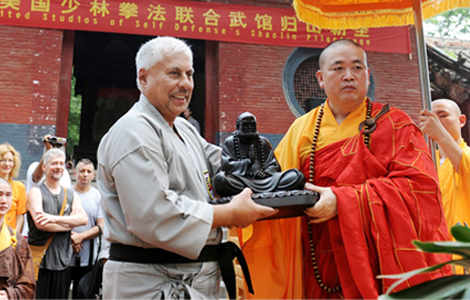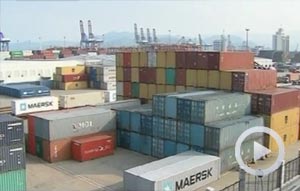Terrorism has no place in Xinjiang
Updated: 2013-07-05 07:04
By Ferdon Pattar (China Daily)
|
||||||||
The recent violent attacks in Shanshan, Xinjiang Uygur autonomous region, were the handiwork of terrorists, which should be condemned by one and all. But some Western media, as they have done before, described the attacks as part of an ethnic conflict. Twenty-four innocent people were killed in Shanshan, of which 16 belonged to my Uygur ethnic group. What happened in Xinjiang was a massacre, not ethnic conflict.
The attacks had nothing to do with Islam, which many terrorists claim to be their religion. Islam teaches people to love their neighbors, but the attackers exhibited no such feeling when they butchered the residents of the town where they had been living for almost five months.
Eastern Turkistan movement organizations have close contacts with foreign terrorist groups and some of their members have been trained outside China. This shows that the attacks in Shanshan were related neither to religion nor to ethnicity.
Some Western media outlets love to portray terrorists who carry out attacks in China as "heroes" seeking religious or political freedom. But the truth is that such terrorists are nothing but abominable criminals who betray their religion as well as country by killing innocent people.
Chinese people sympathized with their American counterparts after Sept 11, 2001, attacks and more recently after the Boston bombings. They also strongly condemned the terrorist attacks. So if some Western media outlets insist that the killings of innocent people in Xinjiang were part of a movement to gain "religious or ethnic freedom", does it mean that the failure of the US' religious and ethnic policies led to the 9/11 attacks and Boston bombings?
The attacks in Shanshan county could hurt the local economy. Within six days of the July 5, 2009 riots, about 1,410 groups and 84,940 tourists cancelled their scheduled trips to Xinjiang. The Shanshan attacks could result in a similar fallout this year, which would deal a blow to local tourism. The losses incurred by the tourism sector could lead to economic slowdown and increase the unemployment rate, and the ultimate sufferers will be the local people.
Thanks to the concerted efforts of government departments and travel agencies, Xinjiang's tourism sector started recovering within a month of July 5, 2009 riots. Over the past three years, Xinjiang has been experiencing rapid development. In fact, Xinjiang achieved a 12 percent GDP growth last year. And during the first five months of this year, a total of 99.6 billion yuan ($16.24 billion) had been invested in Xinjiang's key projects.
People in Xinjiang have the right to live a prosperous and happy life. But terrorist attacks, such as the one in Shanshan, deprive them of that right. Moreover, many Xinjiang residents could be misunderstood (or misunderstand the situation) because of the crimes of separatists. In more than one case Xinjiang residents have been misunderstood because the attacks took place in their hometown. To ensure that such misunderstandings don't take place, it is necessary to root out separatism. This is also important to let people from other regions and provinces know the real Xinjiang, a place of rich natural resources and varied culture with potential of rapid social and economic development. For that, the peace-loving people in Xinjiang have to join hands with their brethren from other provinces and regions to work for the common good of the country and the Chinese people as a whole.
Xinjiang residents will not bow to violence. The jihad the extremists and separatists claim to have launched has nothing to do with the different ethnic groups who call Xinjiang their home. The dream of ordinary people here is to lead a peaceful, prosperous life without fear, for which social stability and a unified community are a necessity. That the Shanshan attacks have been unanimously condemned by members of all ethnic groups best reflects their aspirations, and proves that extremism and separatism cannot have takers in Xinjiang.
Ferdon Pattar is vice-director of the Institute of Law Studies, affiliated to the Xinjiang Academy of Social Sciences. This is an excerpt from his interview with China Daily's Zhang Zhouxiang.
(China Daily USA 07/05/2013 page16)

 Chinese fleet arrives in Vladivostok for drills
Chinese fleet arrives in Vladivostok for drills
 Joey Chestnut wins 7th contest with 69 dogs
Joey Chestnut wins 7th contest with 69 dogs
 Lisicki, Bartoli to vie for new Wimbledon crown
Lisicki, Bartoli to vie for new Wimbledon crown
 Muscle Beach Independence Day
Muscle Beach Independence Day
 Tough workout for Li Na in war of words
Tough workout for Li Na in war of words
 Submersible taps mineral deposits in S China Sea
Submersible taps mineral deposits in S China Sea
 Ecuador finds spy mic for Assange meeting
Ecuador finds spy mic for Assange meeting
 US martial artists arrive at Shaolin Temple
US martial artists arrive at Shaolin Temple
Most Viewed
Editor's Picks

|

|

|

|

|

|
Today's Top News
Mandela on life support, faces 'impending death'
Missouri govt's veto won't stop Smithfield deal
ROK to discuss Kaesong normalization with DPRK
Gunman shoots two, commits suicide in Texas
Baby formula probe to shake or reshape industry?
Passenger detained over bomb hoax in NE China
High rent to bite foreign firms in China
Egypt's prosecution imposes travel ban on Morsi
US Weekly

|

|






